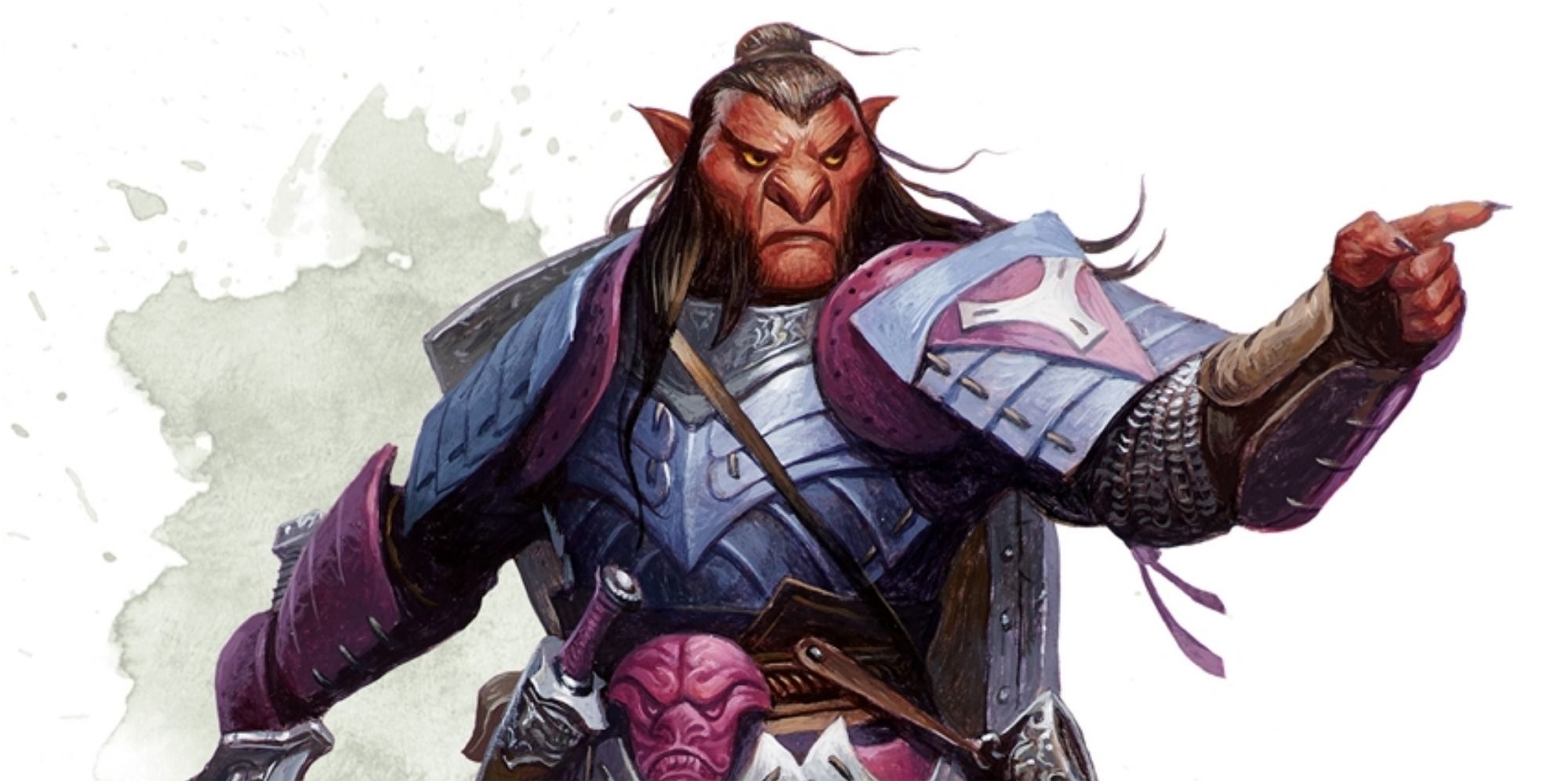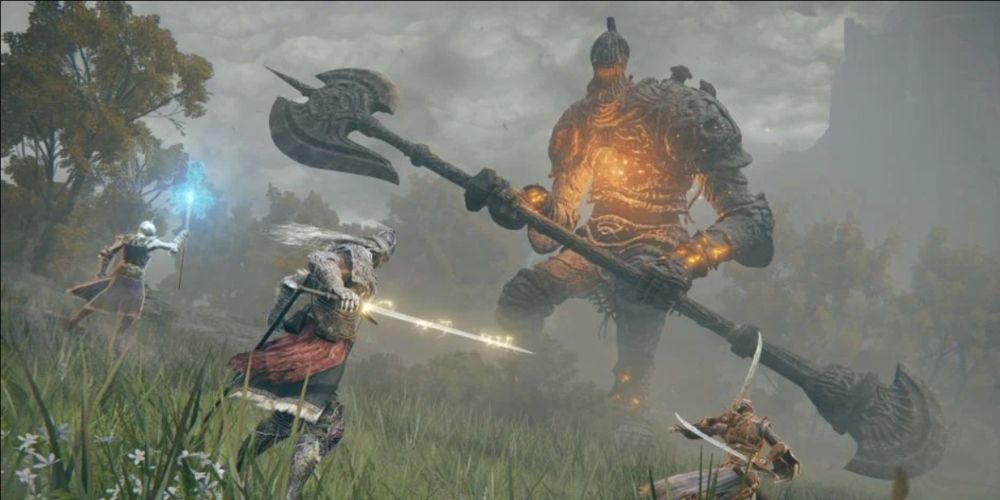Soulsborne games are full of fascinating and engaging NPCs, and the latest of FromSoftware's punishing RPGs is no different. Elden Ring has an expansive cast of engaging and interesting characters and many unique questlines that the player can follow regarding these NPCs. As well as having their own goals and storylines, many of these NPCs give the only directions to the player as to where to go or what to do in the game.
The Soulsborne series of games take a lot of inspiration from Dungeons & Dragons, as well as other tabletop games. Naturally, as this is recognized in these video games, many players become interested in how to apply some of the concepts of Elden Ring to their D&D games. Since NPCs are one of the biggest storytelling devices in both D&D and Elden Ring, this is a logical place to start.
Elden Ring NPCs Provide Direction
One of the closest similarities between D&D and Elden Ring, and thus one of the easiest concepts to translate, is NPC direction. While a DM might give players direction themselves, or have the players' characters be able to infer a direction from some action or event, the direction is most often given through NPC interaction. Quest-givers, enemies, allies, innkeepers and rival adventurers can all be sources of direction for players in D&D. In Elden Ring, though NPCs are much fewer and farther between than in most D&D games, they serve a similar function. The player meets many NPCs on their journey through the Lands Between, and often they can point them in the direction of something interesting, give them a piece of crucial information about an upcoming area, or even sell them useful items.
In D&D, the best way to apply this style of NPC is fairly simple. The DM would have to consider carefully how many NPCs the party will interact with, what those NPCs will provide and give each of them a small piece of information that could lead to a greater whole. Various NPCs at different points along the party's route could give them more and more information about their destination, for example. The main difference here is that, in D&D, as it is a completely open system, players could ask the NPC any question at all, but having at least a rudimentary grasp on whom a given NPC is and why they know the information they have will allow the DM to answer most questions.
Elden Ring NPCs Are Interesting and Different from One Another
One of the main aspects of Elden Ring NPCs is their individuality and sense of agency in the world. They have their own motivations that are parallel or even counter to the player, and they progress along their storylines even without the player's help in some cases. One of the greatest qualities of Elden Ring's NPCs compared to other Soulsborne games is that they do not wait around for the player to meet them at every point in their journey. Sometimes, due to events in the world or due to the player reaching a certain point in the game, an NPC will simply progress without meeting the player at a certain step, and this can change their story.
Things that a DM can take from Elden Ring NPCs are their agency and recurrence, as well as their tone. The tone is one of the easiest things to apply to an NPC in D&D, as it stems more from the presentation and roleplaying than from its design, though some design is still required. In Elden Ring, almost every NPC has a core concept. Often this takes the form of ambition or obsession with one of the game's items or characters.
These concepts can take many forms, and while D&D NPCs need to be fleshed out slightly more due to necessity, the same concepts can be easily applied. NPCs should each have a strong goal -- something they are constantly working towards, and many should have an obsession, moral or code that causes them to want to work towards this goal. These concepts are often twisted against the NPC in some way along their journey. For example, a royal guard devoted to the king they serve could remain loyal even should that king be corrupted.
Elden Ring's NPC Storytelling Can Make Campaigns More Interesting
Similar to the agency and theme of its NPCs, Elden Ring's NPC questlines can be easily applied to D&D. Characters could succumb to their obsessions and become corrupted, journeying through the world without the players by their side or even setting out to fight certain villains alone. Another unifying concept of many Elden Ring NPCs is that their stories rarely end well, especially should the player not get involved. If it were to be translated into a D&D campaign, an NPC setting out on some dangerous task, such as fighting a boss or sneaking into a fortified castle without the players getting involved, that NPC would most likely die.
It is also important to provide some variety in NPCs from a storytelling perspective. This is why characters like Alexander the Warrior Jar exist in Elden Ring, providing a lighter, sometimes even comedic, character to provide a break from the grim or darker stories. Of course, Alexander's story also doesn't have a particularly happy ending, in keeping with the tone of the game, but D&D is a great place to take an initially comic character like this and take their story in an unexpected direction.





